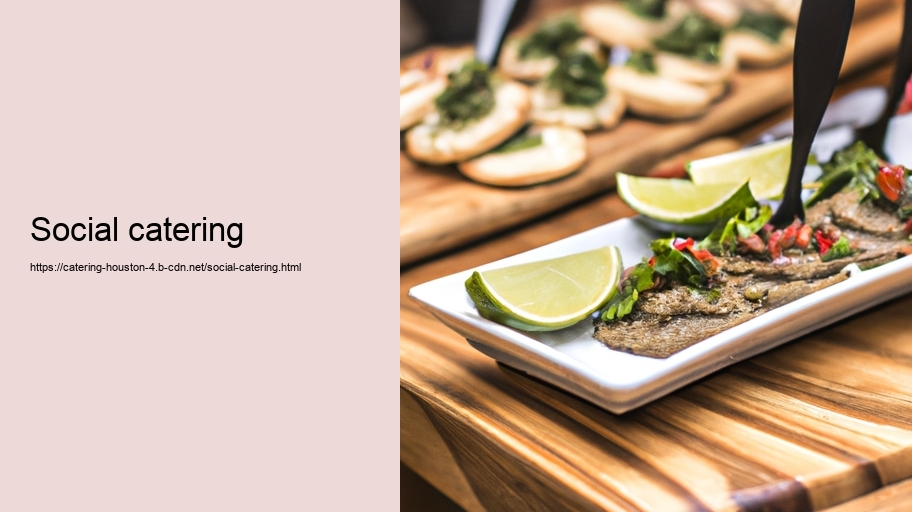Social catering is a term that encapsulates the provision of food and beverage services to social events, ranging from small gatherings at home to large-scale celebrations such as weddings, anniversaries, birthdays, and other milestone occasions. This service extends beyond merely preparing and serving meals; it involves a comprehensive approach to event planning, encompassing menu selection, presentation aesthetics, dietary considerations, and often times coordinating with other aspects of an event like decor and entertainment.
At its core, social catering is about bringing people together through the shared experience of enjoying a meal. Food has long been a central part of human connection—a means by which we celebrate our cultures, traditions, and significant life moments. Social caterers play an integral role in these rituals by providing dishes that not only satisfy the palate but also contribute to the atmosphere and theme of an event.
One key aspect of social catering is customization. Unlike commercial or institutional catering—where standardization might be more common—social catering thrives on its ability to tailor experiences to individual tastes and preferences. When planning a wedding banquet, for example, couples often want their personalities reflected in the menu choices or may request specific cuisine that holds sentimental value for them. Social caterers must be adept at listening closely to their clients' desires and translating those into culinary reality.
Another element intrinsic to social catering is attention to detail. Presentation is nearly as important as taste when it comes to catering for social events; how food looks can set the tone for an entire occasion. An elegantly plated dish can elevate a formal gathering while playful arrangements can add charm to a casual get-together. Social caterers are artists in their own right—their medium being ingredients and their canvas being plates or buffet tables.
Furthermore, adaptability is vital in social catering due to the unpredictable nature of events. Issues such as last-minute guest count changes or unexpected dietary restrictions can arise without warning. A proficient caterer must be able to think on their feet and execute necessary adjustments with minimal disruption to service quality.
Dietary considerations have taken center stage in recent years with increasing awareness around nutrition, allergies, religious restrictions, and lifestyle choices such as veganism or vegetarianism. The modern social caterer has evolved into a knowledgeable professional capable of accommodating an array of dietary needs without compromising on taste or variety.
Sustainability practices are also becoming integral within the industry as consumers become more environmentally conscious. This shift has led many caterers toward local sourcing of ingredients, reducing waste through careful planning and portion control, employing reusable serveware when possible—and even offering plant-based menus that reduce environmental impact associated with animal farming.
Beyond food preparation itself lies another dimension: working harmoniously with other vendors involved in an event—from florists creating centerpieces that complement table settings prepared by the caterer—to venue managers ensuring kitchen facilities meet the chef’s requirements for successful execution.
In conclusion, social catering represents much more than just feeding guests at special occasions; it's about creating memorable experiences that resonate emotionally through thoughtful cuisine artistry coupled with impeccable service delivery—all tailored uniquely for each personal celebration it enhances. As society continues evolving alongside gastronomic trends and values shift towards mindful consumption patterns—social caterers will undoubtedly continue adapting their craft while preserving their role as pivotal contributors within our celebratory traditions.

social catering
social catering